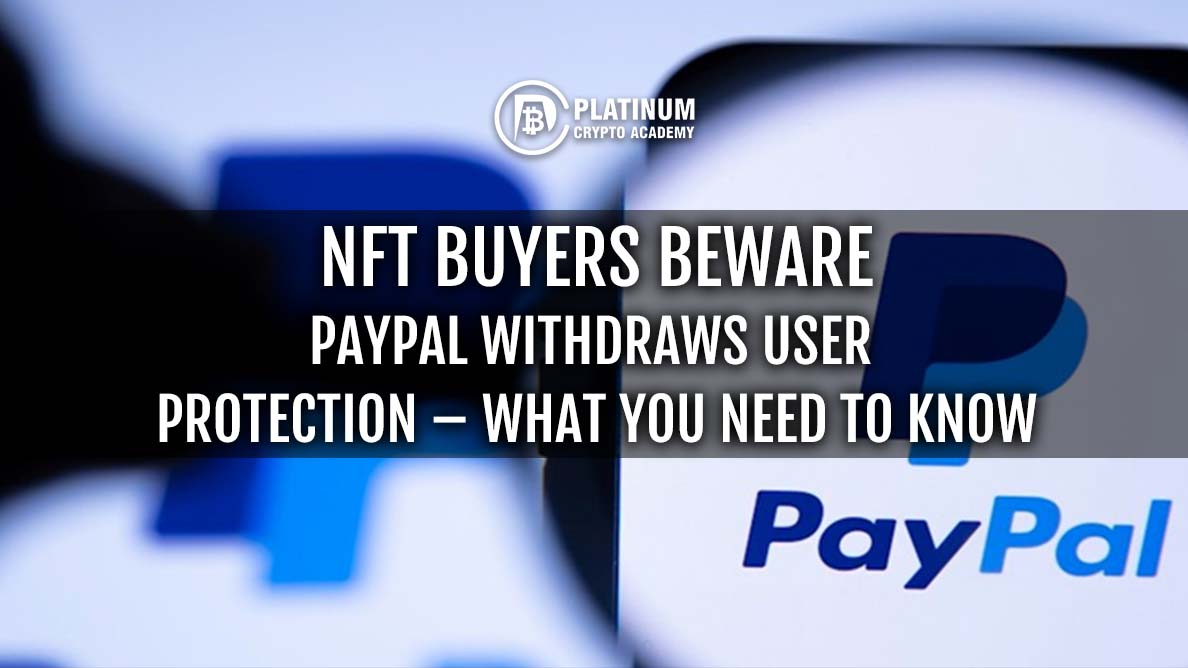PayPal has recently made significant revisions to its user protection policy, specifically targeting NFT (Non-Fungible Token) transactions by excluding them from its purchase protection program.
Effective May 20, 2024, both buyers and sellers involved in NFT transactions will no longer benefit from the purchase protection previously provided by PayPal. This change, which was quietly implemented through an update to the company’s terms of service, has stirred significant concern and discussion within the NFT community.
According to the latest update, PayPal will no longer extend its Seller Protection Program to transactions involving NFTs if the transaction amount exceeds $10,000. This policy adjustment leaves sellers particularly vulnerable to substantial financial risks. PayPal will not provide coverage for any counterfeiting, refund issues, or fraud exceeding $10,000 in NFT sales, exposing sellers to potential losses.
Moreover, PayPal specifies that transactions amounting to $10,000.00 or less will still fall under PayPal’s Seller Protection Program, unless the buyer disputes it as an “unauthorized transaction,” and as long as all other eligibility criteria for protection are satisfied.
This decision to withdraw protection for NFT transactions follows an initial announcement made on March 21, where PayPal hinted at discontinuing safeguarding certain NFT-related activities, a plan that is now fully implemented. This decision has generated significant discussion within the NFT community and raised concerns among buyers and sellers alike.
Previously, PayPal’s protection for NFT transactions provided a level of security for both buyers and sellers. For example, if a buyer received an NFT that didn’t match the advertised description, they could request a refund through PayPal’s dispute resolution process. Sellers were also shielded from discrepancies in payments and fraudulent refund claims. This shift marks a significant change in the company’s approach to NFT transactions and has left many users reevaluating their strategies and considering alternative payment methods.
PayPal’s decision comes despite its ongoing involvement with the cryptocurrency sector. The company has filed numerous patents related to blockchain and NFTs, indicating its interest in the technology. Recently, PayPal’s US branch introduced a new feature enabling international payments using the stablecoin PYUSD, further demonstrating its commitment to exploring the possibilities of blockchain-based transactions.
While PayPal’s withdrawal of protection for NFT transactions may deter some users from engaging in NFT-related activities, it also underscores the need for greater transparency and security measures within the NFT marketplace. As the popularity of NFTs continues to grow, it is essential for platforms and marketplaces to prioritize the safety and interests of their users.
This move by PayPal has raised questions about the future of NFT transactions and the level of security and trust within the NFT marketplace. Many buyers and sellers are now reevaluating their strategies and considering alternative payment methods to mitigate risks and protect their investments.
While PayPal’s decision may discourage some users from engaging in NFT transactions, it also highlights the need for greater transparency and accountability within the NFT space. As the popularity of NFTs continues to grow, it is crucial for platforms and marketplaces to establish robust security measures and provide adequate protection for all parties involved.
So, the decision highlights the evolving nature of digital transactions and the challenges associated with emerging technologies like NFTs. It serves as a reminder for users to stay informed, exercise caution, and explore alternative options to safeguard their interests in the ever-changing landscape of digital commerce.



